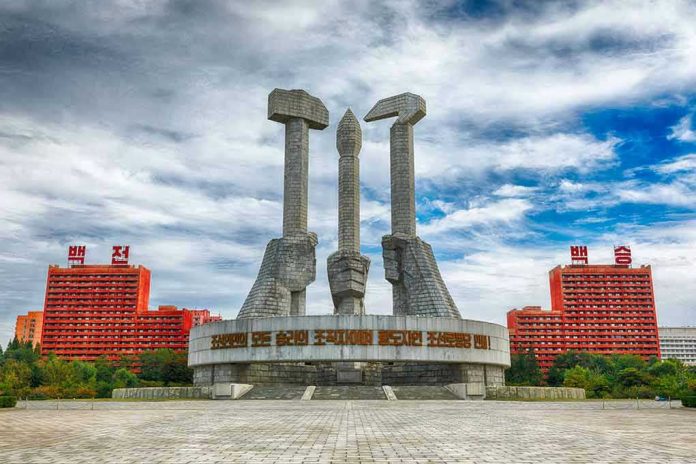
Just when you thought North Korea was opening its doors a crack, they slam shut again, leaving the world scratching its head.
At a Glance
- North Korea bans foreign tourists from its newly opened Wonsan-Kalma beach resort.
- The ban follows a brief period of allowing Russian tourists.
- The resort was intended to boost foreign currency and North Korea’s image.
- The ban highlights North Korea’s unpredictable tourism policies.
North Korea Closes the Door
North Korea has once again demonstrated its flair for the unpredictable. Just weeks after opening the Wonsan-Kalma coastal tourist complex to domestic tourists, and briefly to Russian visitors, the regime has announced a ban on foreign tourists. The move comes without any official explanation or hint of when, or if, the ban might be lifted. The resort, a massive project designed to host 20,000 guests, now stands as a symbol of North Korea’s erratic and tightly controlled tourism policies.
North Korea’s leader, Kim Jong Un, had high hopes for the Wonsan-Kalma resort. It was meant to be a beacon of his leadership, showcasing the nation’s potential to attract foreign currency and improve its international standing. Yet, the abrupt tourism ban throws a wrench into these plans, raising questions about the regime’s true priorities and its ability to manage foreign relations effectively.
The Russian Connection
Russia, a key ally and diplomatic partner for North Korea, plays a significant role in this recent development. The ban follows a visit by Russian Foreign Minister Sergey Lavrov, who met with Kim Jong Un at the resort. A small contingent of Russian tourists was permitted to enjoy the resort’s amenities briefly before the doors were slammed shut. This sudden halt underscores North Korea’s reliance on a narrow set of international partners and its continued isolation from broader tourism markets.
The tourism sector in North Korea has long been used as a tool for diplomatic maneuvering, propaganda, and controlled engagement with the outside world. The selective and unpredictable nature of North Korea’s tourism policies reflects its broader strategy of maintaining strict control over its international image and limiting foreign influence.
Impacts and Implications
The immediate impact of this ban is a significant blow to the resort’s potential as a foreign currency generator. Local communities and North Korean workers, who stood to benefit from increased tourism, now face diminished economic opportunities. Meanwhile, foreign tour operators and potential tourists are left in the lurch, dealing with financial losses and the uncertainty of future engagements with North Korea.
This move also raises questions about North Korea’s credibility as a tourism destination. Repeated closures and policy reversals chip away at investor confidence and deter potential partners from engaging with the regime. The reliance on a limited set of partners, primarily Russia and potentially China, limits the sector’s growth potential and underscores the regime’s isolationist tendencies.
The Bigger Picture
Analysts and experts are left speculating about the motives behind this abrupt policy reversal. Some suggest it may have been triggered by negative coverage from a Russian journalist, who alleged that North Korean “tourists” at the resort were staged by authorities rather than genuine visitors. Others see it as a reflection of internal concerns about foreign influence, security, or negative publicity.
Ultimately, the ban highlights the inherent instability and unpredictability of engaging with North Korea’s tourism sector. The regime’s priorities often shift according to diplomatic developments and internal security concerns, making it a challenging environment for foreign investors and partners. As North Korea continues to navigate its complex web of international relationships, the world watches with cautious skepticism.
Sources:
Wikipedia: Tourism in North Korea
U.S. State Department Travel Advisory




